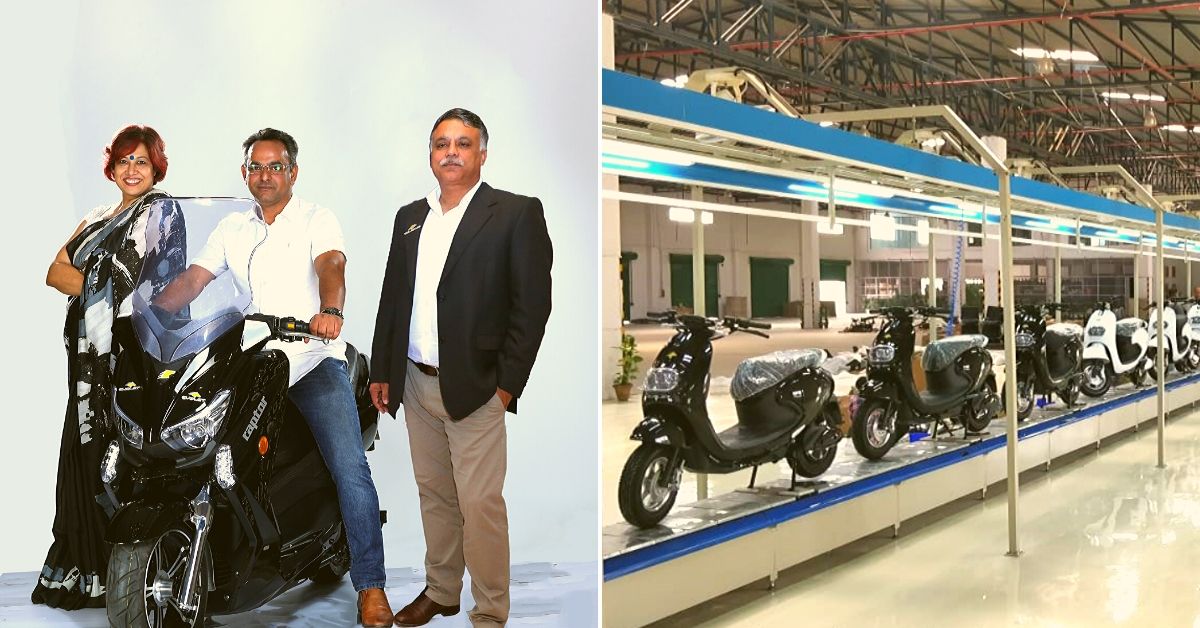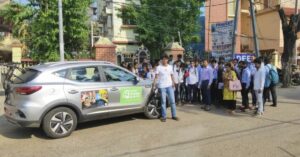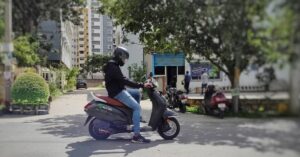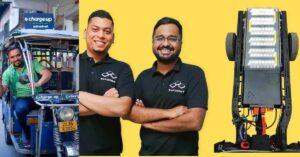Founded by Military Veterans, This Startup’s E-Bike Can Travel 130 km Per Charge
Veterans Col Ajay Ahlawat and Sqn Ldr Prerana Chaturvedi are now fighting a different battle—the fight for clean air and good technology!

Before their sojourn into entrepreneurship, armed forces veterans Col (retd) Ajay Ahlawat and Sqn Ldr (retd) Prerana Chaturvedi were ‘hardcore’ defence professionals travelling through different countries and continents accessing the latest technology of the day.
“Defence personnel are usually the first to get the taste of any new technology. After that, the said product is scaled down to many versions for public use, like, for example, GPS,” says Prerana, who is today the Executive Director and CEO of Evolet—Rissala Electric Motors, a Gurugram-based electric mobility venture, to The Better India.
But it wasn’t merely a desire to access the latest technologies that inspired both Prerana and Ajay to make the splash into electric mobility. It began as a way of helping defence personnel living in remote defence cantonments find more convenient ways of utilising their personal vehicles.
“If I were operating a personal vehicle in these far-flung and secluded cantonments, I would have to travel nearly 5 km to refuel. So, there was an urgent need to build a mobility solution. What we eventually found was a good business opportunity, as a result of which, we are not only making money but also giving acute benefits to our customers,” she adds.
Established only on September 4, 2019, by Ajay, Prerana and Kamaljeet Kataria, Evolet India has hit the ground running by launching a series of ICAT-certified electric scooters and motorcycles in both low-speed and hi-speed variants, besides electric buses and quad bikes (ATV’s).
“We started sales with the low-speed segment because as per government regulations, the registration for this range of electric scooters isn’t mandatory. This makes customer and target group penetration easier and faster. Also, it is easier to create a niche for ourselves because customers are not hassled by registration paperwork, the requirement for a number plate and longish bureaucratic delays,” says Prerana.

“For a seller, dealer and consumer, the product has to offer turnkey solutions because the target segment here is the tech-savvy millennial crowd with access to smartphones. If the product is as easy to use, it becomes easier to break into the EV segment,” she adds.
At present, they have launched the low-speed Pony, Polo and Derby models of e-scooters in both Li-ion (Lithium -ion) and VRLA (Valve-Regulated Lead-Acid) battery versions.
The Pony and Polo models, separated by design, run 65 km on a single charge irrespective of riding conditions at a top speed of 25 kmph. One full battery charge requires nearly 2.5 hours in Li-ion and around 5 hours in VRLA (Valve-Regulated Lead-Acid battery). Derby, the other model, offers 65 km per single charge and takes around 4 hours in Li-ion and 6 hours in VRLA to charge.
These e-scooters are available at a price range between Rs 44,000 and Rs 65,000. Besides, Evolet India also manufactures electric buses which are homologated and hold ARAI and ICAT certification.
By March 31, 2020, Evolet India will roll out their high speed-high range models, which will be on display at the Auto Expo in February.
These models include the Hawk, a high speed motorbike with a battery range of 120-130 km and top speed upto 100 kmph and the Raptor, which is a high powered muscular scooter with bike-like performance but equally robust and comfortable to use.

Evolet is also planning to configure the Raptor for police and ambulance services. The extended range of the electric scooters will be backed by double lithium-ion batteries, which can extend the range to 160-170 km.
The venture has also developed a quad bike, an off-roader, which will be in production in February. It will have a top speed of 60 kmph and a range of 50 km.
“Batteries are central to our product. We have both Lithium and Valve-Regulated Lead-Acid batteries (VRLA). The biggest challenge is to bring about a positive change in customer acceptance. Even though lithium batteries are faster and more efficient, customers usually prefer VRLA because of cost-effectiveness,” says Prerana, speaking to the Economic Times.
For retail customers, both battery options are available. But for commercial customers who are looking for extended battery life cycles with a swappable option and 100% safety margin, there is also the option of offering batteries with 2,000-3,000 life cycles.
This will allow commercial customers to derive maximum mileage of upto eight-year years on those batteries.
The EV company will also give them the option of utilising lithium ferro-phosphate batteries that are much more robust, long-lasting, sustaining and safe, claims Prerana.
To acquire these batteries, Evolet has teamed up with a third-party partner.
What’s more impressive about this nascent venture is how quickly they have transitioned into manufacturing large volumes of vehicles.
“At our manufacturing plant in Bilaspur, Haryana (close to Manesar), which is spread up in an area of 1.4 lac sq ft, we have the capacity of producing 380 scooters per day and depending on the order can be scaled it upto 1180 scooters per day. We also have two plants in Chennai and Hyderabad spreading over 2 lac sq ft, which are producing electric buses. At these plants, we can produce 1500 buses per year,” Prerana tells The Better India.

Since its inception, the startup has manufactured 1500 vehicles. Within 4 months of launch, Evolet has gained substantial presence on Indian roads with operational outlets in Maharashtra, Gujarat, Uttar Pradesh, Tamil Nadu, Telangana, Karnataka, Madhya Pradesh, Chandigarh, Haryana and Delhi, among others which are shortly coming up.
Prerana goes onto claim that the startup is 100% debt-free and the founders have raised funds on their own instead of seeking angel investors.
With an initial budget of Rs 150 crore (two wheeler division) and Rs 300 crore (bus division) to start their pan India operations and productions, their objective is to make smart investments in a phased manner to ensure long term sustainability of the venture.
But there is no questioning their ambition. By the end of this year, they plan on opening 100 dealerships across the country, and have plans to expand in the international market as well, particularly across the Asia-Pacific region and the Middle East.
These relative newbies in the electric mobility segment are indeed making strides that not many startups can.
Also Read: B’luru Startup’s Swappable Tech Can Turn India’s Buses & Autos 100% Electric
(Edited by Gayatri Mishra)
Like this story? Or have something to share? Write to us: [email protected], or connect with us on Facebook and Twitter.
This story made me
-
97
-
121
-
89
-
167
Tell Us More
We bring stories straight from the heart of India, to inspire millions and create a wave of impact. Our positive movement is growing bigger everyday, and we would love for you to join it.
Please contribute whatever you can, every little penny helps our team in bringing you more stories that support dreams and spread hope.



















